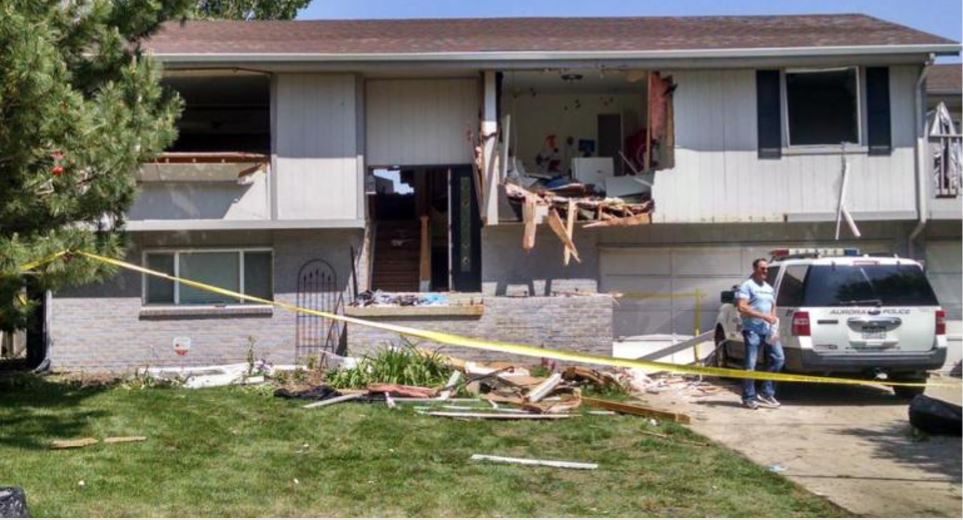NewsVine_Mariyam
Platinum Member
The Institute For Justice
Press Release | November 25, 2019
Andrew Wimer
Assistant Director of Communications

Arlington, Va.—If the government needs to destroy your home to build a freeway or a school, the Constitution entitles you to just compensation. But what if the government needs to destroy your home for some other reason—say, to capture a fugitive who has randomly taken refuge in your house while fleeing the police? Does the government owe you anything?
Shockingly, the U.S. Court of Appeals for the Tenth Circuit held in a ruling this October that as long as the government uses its “police power” to destroy property, it cannot be required to provide compensation for that property under the U.S. Constitution’s Takings Clause. Today, the Institute for Justice, the nation’s premier defender of property rights, announced that it will file a petition for rehearing by the entire Tenth Circuit (known as rehearing en banc).
“The simple rule of the Constitution is that the government cannot arbitrarily single out private citizens to bear the costs of something that should rightly be the burden of society as a whole,” explained IJ Attorney Jeffrey Redfern. “If the government requires a piece of property to be destroyed, then the government should pay for it—and that’s just as true regardless of whether the people doing the destroying are the local school board or the local police.”
The case was brought by Leo, Alfonsina and John Lech, seeking compensation for the destruction of a home Leo and Alfonsina owned (and in which their son John lived with his own family) in Greenwood Village, Colo. In 2015, an armed shoplifter fleeing the police broke into the home (apparently at random) and refused to come out. After taking gunfire from the shoplifter, the police resorted to more strenuous means of attack, including explosives, high-caliber ammunition, and a battering ram mounted on a tank-like vehicle called a BearCat. The fugitive was apprehended, but the home was totaled.
The Lechs’ case, originally brought by Colorado attorney Rachel Maxam, who continues to represent the family alongside IJ, argued that the complete destruction of the house was a “taking” that required compensation under the U.S. Constitution. But a three-judge panel disagreed, ruling that actions by law enforcement officials could never amount to a “taking,” no matter what, and so the appropriate amount of compensation was zero dollars.

“The police are allowed to destroy property if they need to in order to do their jobs safely,” said IJ Senior Attorney Robert McNamara. “But if the government destroys someone’s property in order to benefit the public, it is only fair that the public rather than an innocent property owner pay for that benefit.”
Press Release | November 25, 2019
Andrew Wimer
Assistant Director of Communications

Arlington, Va.—If the government needs to destroy your home to build a freeway or a school, the Constitution entitles you to just compensation. But what if the government needs to destroy your home for some other reason—say, to capture a fugitive who has randomly taken refuge in your house while fleeing the police? Does the government owe you anything?
Shockingly, the U.S. Court of Appeals for the Tenth Circuit held in a ruling this October that as long as the government uses its “police power” to destroy property, it cannot be required to provide compensation for that property under the U.S. Constitution’s Takings Clause. Today, the Institute for Justice, the nation’s premier defender of property rights, announced that it will file a petition for rehearing by the entire Tenth Circuit (known as rehearing en banc).
“The simple rule of the Constitution is that the government cannot arbitrarily single out private citizens to bear the costs of something that should rightly be the burden of society as a whole,” explained IJ Attorney Jeffrey Redfern. “If the government requires a piece of property to be destroyed, then the government should pay for it—and that’s just as true regardless of whether the people doing the destroying are the local school board or the local police.”
The case was brought by Leo, Alfonsina and John Lech, seeking compensation for the destruction of a home Leo and Alfonsina owned (and in which their son John lived with his own family) in Greenwood Village, Colo. In 2015, an armed shoplifter fleeing the police broke into the home (apparently at random) and refused to come out. After taking gunfire from the shoplifter, the police resorted to more strenuous means of attack, including explosives, high-caliber ammunition, and a battering ram mounted on a tank-like vehicle called a BearCat. The fugitive was apprehended, but the home was totaled.
The Lechs’ case, originally brought by Colorado attorney Rachel Maxam, who continues to represent the family alongside IJ, argued that the complete destruction of the house was a “taking” that required compensation under the U.S. Constitution. But a three-judge panel disagreed, ruling that actions by law enforcement officials could never amount to a “taking,” no matter what, and so the appropriate amount of compensation was zero dollars.

“The police are allowed to destroy property if they need to in order to do their jobs safely,” said IJ Senior Attorney Robert McNamara. “But if the government destroys someone’s property in order to benefit the public, it is only fair that the public rather than an innocent property owner pay for that benefit.”
Homeowners Seek Rehearing in House-Destruction Case - Institute for Justice

